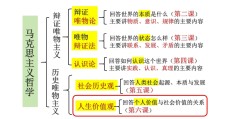物理学的英语读音是什么(物理物理学用英文怎么读)
我不想用人们的欢乐将我心中的忧伤换掉
也不愿让我那发自肺腑怆然而下的泪水变成欢笑
我希望我的生活永远是泪与笑
泪会净化我的心灵

让我明白人生的隐秘和它的堂奥
笑使我接近我的人类同胞
它是我赞美主的标志、符号
泪使我借以表达我的痛心与悔恨
笑则流露出我对自己的存在感到幸福和欢欣
——节选自黎巴嫩作家纪伯伦《泪与笑之歌》
01
一直以来,文学作品不仅歌颂欢笑,也歌颂眼泪,认为眼泪有神奇的缓解悲伤的力量。
莎士比亚曾经在亨利六世(King Henry VI)中就曾表达过类似的观点:“to weep is to make less the depth of grief”。美国作家Lemony Snicket也说过:“unless you have been very, very lucky, you know that a good, long session of weeping can often make you feel better, even if your circumstances have not changed one bit”。
然而,近来,科学家们对作家们的看法提出了不同的观点。
原 文
Until recently, scientists and authors were at stark disagreement over the point of crying.
直到最近科学家们和作家们在对哭泣的作用上有着鲜明的分歧。
at stark disagreement over
在…有了完全不同的意见;
stark
adj . 完全的
02
他们认为眼泪仅仅是一种生理活动的产物。
原 文
Charles Darwin, on the other hand, thought that the production of tears (the act of crying notwithstanding) was merely a useless side effect of the way that the muscles around the eye worked. For him, those muscles had to contract from time to time so that they didn’t overflow with blood; the expulsion of tears was simply an unintended consequence of that evolved physiological process. (He did acknowledge that crying could help young infants attract the attention of their parents, though.)
在另一方面,查尔斯·达尔文认为眼泪的产生(也就是哭泣的行为)仅仅是眼周肌肉运动的无用副产物。在他看来,这些肌肉组织必须不时地收缩,以确保不会充血。眼泪的涌出仅仅是进化后的生理过程一个无意识的结果。(但是他承认哭泣可以帮助婴儿吸引父母的注意力。)
contract
v. 收缩;作为动词另外还有“感染;签订合约”的意思;作为名词“合同,合约”
overflow(with)
v. 溢出,充溢(着)
expulsion
n. 原义是“驱逐,开除”,这里根据句意翻译成“涌出”
unintended
adj. 无意识的;计划外的
acknowledge
v. 承认(admit)
03
而在现在的科学家看来,哭泣是生理活动对情感刺激的一种反馈,而且除了眼泪之外,面部表情和呼吸频率也是其一部分。
原 文
We now know that crying – at least, the sort that adults do – is a complex physiological response to some kind of emotional stimulus. The most prominent feature is of course the shedding of tears, but it also includes changes in facial expressions and breathing patterns. "Sobbing," for example, refers to the rapid inhalation and exhalation that so often accompanies crying.
我们现在知道哭泣——至少是成年人的哭泣——是对某些情感刺激的复杂的生理反应。其最突出的特征是流出眼泪,但它也包括面部表情和呼吸方式的变化。比如说,“啜泣”指的就是哭泣时常伴有的快速吸气和呼气动作。
prominent
adj. 突出的
shedding
n. 脱落,这里指“流出”
inhalation and exhalation
吸气和呼气,即呼吸。事实上“hal”这个词根是“呼吸”的意思,前缀“in-”表示“入”,“ex-”表示“出”,所以in(ex)hale是“吸(呼)气”的意思,“-ation”是名词后缀。
accompany
v. 伴随…
04
除此之外,物理刺激下产生的眼泪也不等同于感情刺激下的哭泣。
原 文
From a scientific perspective, that means crying is different from the production of tears in response to a chemical irritant, like when you accidentally rub your eyes after eating spicy foods. Even the tears themselves are different. Tears brought on by sad movies had more protein in them than those that flowed in response to some freshly chopped onions.
从科学的角度来看,这意味着哭泣和化学刺激物下产生的眼泪不同,比如当你吃辣椒后不小心揉了揉眼睛。即使是眼泪也各不相同。因悲伤电影而产生的眼泪就比因新切好的洋葱而流出的眼泪的蛋白质含量更高。
05
另外,我们还需要注意,眼泪不仅仅局限于悲伤的情绪(emotional tears aren't limited to feelings of melancholy),不管是看了一场令人捧腹大笑的(side-splitting)喜剧还是听到一位新郎向新娘朗读婚礼誓词(a groom read wedding vows to his bride),我们都可能流泪,所谓“笑得眼泪都出来了”的经历,我们一定都有。
不管是悲伤的眼泪还是欢乐的泪水,科学家们对情感波动会产生泪水的原因都还不甚了解。下面是一些相关的猜想。
猜想一:
原 文
One idea is that adult crying isn't actually all that different from the sort that babies do, at least when it comes to its social nature. In other words, perhaps weeping is a literal cry for attention, a means of soliciting support and help from our friends when we need it the most. It's a way of communicating our inner emotional state at a time when we may not be able to fully articulate it.
其中一个猜想认为,至少就社会性质而言,成年人哭泣和婴儿哭泣并无大区别。换言之,也许哭泣就是为了获取关注,是我们十分需要的时候从朋友那里寻求支持和帮助的一种方式。哭泣是一种方式,来传达我们无法完全用言语表达的内心情感状态。
When it come to…
当涉及/谈及…
social nature
社会性质,社会属性(注:社会学一般认为,人是社会性的动物,有其社会属性)
solicit
v. 征求;恳求;招募。
n:solicitation
articulate
v. 发声;说清楚
06
猜想二:
原 文
While this may explain some forms of crying, many researchers have found that adults often cry when they're completely alone. Another possibility that is that crying might serve as a means of "secondary appraisal," helping people to realise just how upset they are, a way of helping them understand their own feelings.
The difference seems to lie in the social context: if a person felt embarrassed about crying in public, for example, they might feel less resolved than if they cried alone or with a single close friend. When people tried to suppress or hide their crying, they also wound up feeling less relief afterwards.
尽管这可能解释了某些形式的哭泣,但许多研究者发现,成年人通常在完全独处的时候哭泣。另一种可能性是哭泣可能充当了一种“次级评估”方式,即帮助人们意识到自己有多伤心,这是一种帮助他们理解自己感受的方式。
这大概就是所谓的“净化”或“精神发泄”的概念(the notion of catharsis),和莎士比亚以及亚里士多德等人的观点如出一辙,认为哭能净化人的心灵(cleanse the mind)。
当然,事无绝对。有些人哭过可能会感觉更糟糕。
区别似乎在于其社会语境的不同:比如一个人如果认为当众哭泣很尴尬,那他/她就可能不会像独自哭泣或是当着一个亲密朋友哭泣后那样感觉有所释怀。当人们尝试压抑或是隐藏自己的哭泣时,他们过后的感觉也不会那么释怀。
由此可知,虽然哭泣能缓解悲伤的情绪并非毫无依据(not without merit),但这种神奇的作用需要在正确的社会语境下才会生效。
原文:
[1] Until recently, scientists and authors were at stark disagreement over the point of crying. In King Henry VI, Shakespeare wrote, "to weep is to make less the depth of grief", and the American writer Lemony Snicket said "unless you have been very, very lucky, you know that a good, long session of weeping can often make you feel better, even if your circumstances have not changed one bit".
[2] Charles Darwin, on the other hand, thought that the production of tears (the act of crying notwithstanding) was merely a useless side effect of the way that the muscles around the eye worked. For him, those muscles had to contract from time to time so that they didn’t overflow with blood; the expulsion of tears was simply an unintended consequence of that evolved physiological process. (He did acknowledge that crying could help young infants attract the attention of their parents, though.)
[3] We now know that crying – at least, the sort that adults do – is a complex physiological response to some kind of emotional stimulus. The most prominent feature is of course the shedding of tears, but it also includes changes in facial expressions and breathing patterns. "Sobbing," for example, refers to the rapid inhalation and exhalation that so often accompanies crying.

[4] From a scientific perspective, that means crying is different from the production of tears in response to a chemical irritant, like when you accidentally rub your eyes after eating spicy foods. Even the tears themselves are different. In 1981, Minnesota psychiatrist William H Frey II discovered that tears brought on by sad movies had more protein in them than those that flowed in response to some freshly chopped onions.
[5] As anyone who has attended a side-splitting comedy act or listened to a groom read wedding vows to his bride, emotional tears aren't limited to feelings of melancholy. But while all of us are familiar with the feelings that are associated with crying, whether for joy or sorrow, there's not much that's known about why we do it as adults – but there are plenty of ideas.
[6] One idea is that adult crying isn't actually all that different from the sort that babies do, at least when it comes to its social nature. In other words, perhaps weeping is a literal cry for attention, a means of soliciting support and help from our friends when we need it the most. It's a way of communicating our inner emotional state at a time when we may not be able to fully articulate it.
[7] While this may explain some forms of crying, many researchers have found that adults often cry when they're completely alone. Another possibility that is that crying might serve as a means of "secondary appraisal," helping people to realise just how upset they are, a way of helping them understand their own feelings – it's a provocative idea, with at least some evidence to support it, in some cases.
[8] And then there's the notion of catharsis: crying provides for relief from emotionally stressful situations. The idea is consistent not only with the words of Shakespeare, but with the Roman poet Ovid, who wrote: "It is a relief to weep; grief is satisfied and carried off by tears." The Greek philosopher Aristotle also wrote that crying "cleanses the mind". In a 1986 study of popular US magazines and newspapers, one psychologist found that 94% of articles about crying suggested that it helped to relieve psychological tension.
[9] Indeed, a 2008 study of nearly 4,300 young adults from 30 countries found that most reported improvements in both their mental and physical wellbeing after a bout of crying, but not all. Some reported no change after a crying session, and some even said that they felt worse afterwards.
[10] The difference seems to lie in the social context: if a person felt embarrassed about crying in public, for example, they might feel less resolved than if they cried alone or with a single close friend. The study also found that when people tried to suppress or hide their crying, they also wound up feeling less relief afterwards.
[11] So the notion of having "a good cry" is not without merit, but it seems to necessitate the right kind of social support to be effective. Which means, in the end, that adults might just cry for much the same reason as human infants: to seek help from their friends and family.
END
读外刊 学英语
栏目作者
唐伟胜
新航道特约雅思学术顾问
广东外语外贸大学教授、博士
中国知名英语教育专家
往期内容点这里 ↓↓↓
没觉得全球变暖有啥影响?真感受到就晚了!
在家上班真是件好事吗?
一种语言的消失,到底会产生怎样的影响?
东西方的思维差异竟来自于这里!
科学界新假说:脑子好不好使是靠吃决定的!
小心!你的焦虑正在慢慢杀掉你
先做个自我介绍 : 大家好,I am a loser.
脑子的事,再也别赖沟通问题了
骑车上下班,坏处一大摊
When Was the Last Time You Took On a New Challenge?
少即是多,过犹不及
These are the secrets of constant holidaymakers
开放办公区,效果不如意
工作满量干,大脑受伤害?
新年愿望多,实现不要拖!
钱到多时人孤独
电话无需怕,几招对付它
有钱了,咱也不辞职!
胖子挣得少,工作更难找!
失败是好是坏? 读了这篇,你就知道了!
世界辣么大,不想去看看?
有个工作伴侣是种什么体验?
令人艳羡的工作伴侣
跑步发泄内心愤怒?要三思!
学校应该使用金钱奖励吗?
说说“跳槽”那些词儿
人类最高寿命为115岁,为什么无法再突破?
“性别”话题有哪些必须知道的英语表达?
你知道老师是怎样给学生打分的吗?
“老师打分”用英文怎样表达?
你知道“弹性工作”有哪些英文表达吗?
为什么网络安全是一个越来越严重的问题?
周末为什么无法休息?
如何应对青少年暴力?
新航道英语
英语成功之道
Succeed with Engilsh
发布于 2025-05-11 11:05:09









